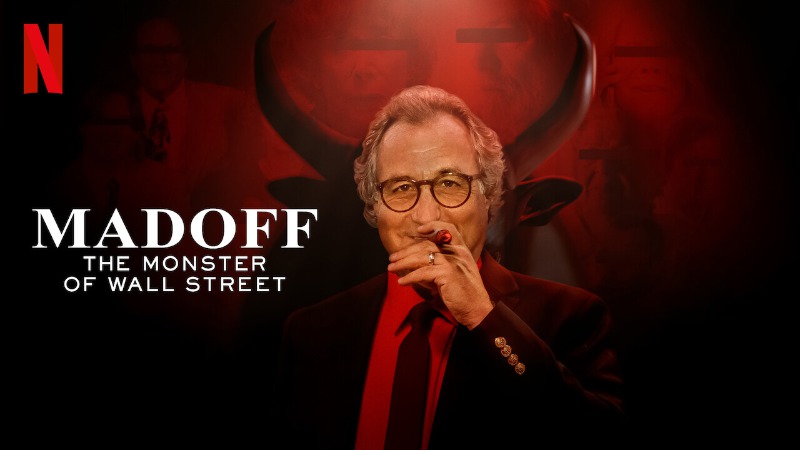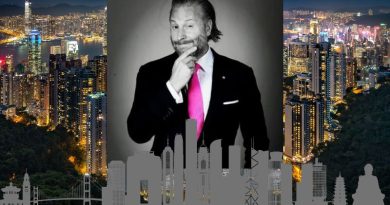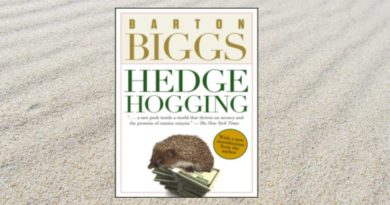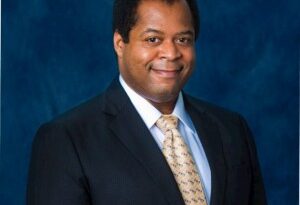Review: “Madoff: The Monster of Wall Street”
A very good four-part Netflix documentary series that follows the rise and fall of Wall Street fraudster Bernie Madoff.
By Stefan Nilsson
Bernie Madoff was arrested on Thursday 11th December 2008 for committing the biggest Ponzi scheme in the history of Wall Street. The multi-billion-dollar fraud was finally revealed when the global financial crisis caused many of the investors who had allocated money to Madoff to put in redemption requests. As Madoff was running a Ponzi scheme, he couldn’t meet the redemption requests and thus had to face the music after decades of fooling people. Simple due diligence would have easily put a stop to the fraud. Why? Because there were no trades done by Madoff. As this fascinating Netflix documentary series shows us, there were many who were suspicious about Madoff’s investment activities, but no one put a stop to it. A few tried, but the powers above them didn’t take action. In 2001 an article was published in Barron’s magazine that questioned what Madoff was doing. It was the start of Madoff’s undoing, but it would take another seven and a half years until the Ponzi scheme was finally revealed.
One person interviewed in one of the episodes of this documentary said something that immediately caught my attention: “He never looks you in the eye.” That, right there, is what it is all about. People do business with people. Proper fund managers look their investors in the eye. A fund manager who doesn’t look you in the eye is not someone you should trust with your money. A fund manager who comes up with excuses when you ask for transparency should be avoided. Madoff’s slippery slope started with some unregulated fund management business that over the years and decades grew into a massive and deliberate fraud. Already in the mid-1960s, Madoff started his secret and illegitimate investment advisory business. He had a legitimate trading business but that soon became overshadowed by his shenanigans. The illusions and house of cards he built soon forced Madoff to make a choice between being a liar and being a failure. He chose to be a liar.
“Madoff never did any investing for his investment advisory business. It involved simply taking people’s money and telling them that he was going to invest it and he never did. They were fictitious trades. It was a Ponzi”, explains Bruce Dubinsky, a forensic accountant, in the documentary. It was all a smoke-and-mirrors show that even fooled the SEC for a long time. Yes, the lack of due diligence and appropriate checks and balances were not limited to the investors, the regulator too failed to do their job properly until it was too late. There were so many red flags that were missed or ignored by so many people that should have known better. If there had been proper third-party administrators and other counterparties in place, they could have verified things independently. But there weren’t any proper counterparties and, internally at Madoff’s firm, compliance was handled by Madoff’s brother Peter Madoff. No one bothered to question this.
The documentary is well-made and uses a combination of dramatisation, archive footage and interviews with people. However, there are a few things where the documentary is not getting things right. For example, author Diana B. Henriques incorrectly refers to Fairfield Greenwich Group as a hedge fund. Fairfield was offering its investors feeder funds and funds of funds. It was never a hedge fund. She also went on to say: “Hedge funds had been around for a long time, but through the 80s and into the 90s, there’s a sea change in the world of retail investors./…/As they became more popular, as every Tom, Dick and Harry decided he could be a hedge fund manager too, this original, classic strategy of hedging your bets was thrown out the window. They were simply collecting money in a pool and investing it with somebody like Bernie Madoff.” Eh, no. She’s confusing funds of funds and feeder funds with hedge funds and lumping proper hedge fund managers in with fraudulent Ponzi scheme operators. These comments are misguided. The documentary would have been even better if the production team had done some basic industry fact-checking.
For newer people in our industry as well as private investors, this series highlights red flags to look for when it comes to basic pre-investment due diligence. Judging by some of the current issues in the crypto world, it seems that many people still don’t understand the role of due diligence or how it should be done. Madoff’s shadow is all over many of the recently revealed crypto scams.









